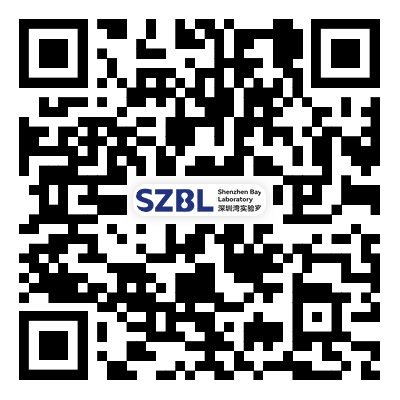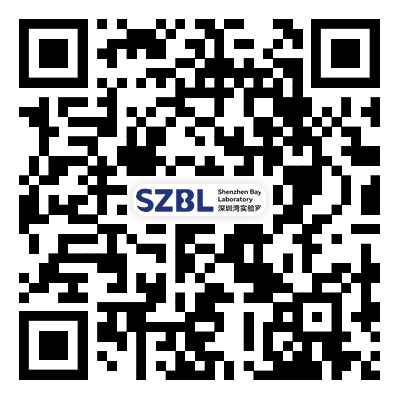
电话:+86-755-86967710
邮箱:webmaster@szbl.ac.cn

肿瘤研究所
Changzheng.lu@szbl.ac.cn
免疫学,癌症生物学,医学与转化研究
特聘研究员
博士后
博士
肿瘤免疫治疗——DNA损伤与肿瘤免疫——肿瘤疫苗——免疫细胞疗法
课题组的项目以临床问题为驱动,以研发药物为目的。我们以dMMR肿瘤为模型,致力于解析T cell在肿瘤中浸润、存活的微环境支持条件以及在PD1抗体治疗条件下T cell功能性衰竭的分子机制。主要研究方向:1)肿瘤细胞内在通路(DNA损伤相关)对T cell浸润、存活和功能的影响;2)维持T cell抗肿瘤持久应答的分子机制;3)靶向肿瘤免疫微环境的抗体药物、疫苗和细胞疗法的开发。
卢长征,深圳湾实验室肿瘤研究所特聘研究员,入选海外优青计划。博士毕业于中科院生物物理研究所,课题是与Seven & Eight Pharmacy合作,负责开发肿瘤免疫激动性小分子和ADC药物,以调控Monocyte/macrophage的功能,所研药物申请8项美国专利,先后在欧美开展I、II期临床试验,现已被默沙东前研发负责人Roger M Perlmutter博士团队收购。2016年加入美国西南医学中心著名免疫学家傅阳心课题组进行博士后训练,主要从事肿瘤免疫治疗的基础和应用性研究,包括肿瘤微环境中tumor cell、DC、NK和T cell的相互作用关系以及靶向肿瘤微环境的双特异性抗体药物开发。研究成果发表在Cancer Cell,Nature Communications, Nature Immunology,Nature Cancer,Science Translational Medicine, Science Immunology, JCI等国际期刊,其中以first/co-first作者身份发表在Cancer Cell(2021, 2篇)的文章获评欧洲癌症研究学会年度十佳论文(EACR Top Ten Cancer Research Publications)。课题组获得2021年度国家优秀青年科学基金项目(海外)和国自然面上项目等基金项目的资助。

1.Huang, Y.#,Lu, C.#, Wang, H., ... & Li, G. M. (2023). DNAJA2 deficiency activates cGAS-STING pathway via the induction of aberrant mitosis and chromosome instability.Nature Communications,14(1):5246.
2. Cai, Y., Zhang, A.,Lu, C.*. (2022). Precision intervention of cell type-specific targeting is required for future cancer immunotherapy.Medical Review, 2(6), 553-554.
3.Lu, C.#, Guan, J.#, Lu, S., Jin, Q., Rousseau, B., Lu, T., ... & Fu, Y. X. (2021). DNA sensing in mismatch repair-deficient tumor cells is essential for anti-tumor immunity.Cancer Cell, 39(1), 96-108.
This paper is previewed byCancer Cell(https://www.cell.com/cancer-cell/fulltext/S1535-6108(20)30664-4); Elected as EACR’s Top 10 Cancer Research Publications in 2020; A highly cited paper in Web of Science.
4. Guan, J.#,Lu, C.#, Jin, Q., Lu, H., Chen, X., Tian, L., ... & Li, G. M. (2021). MLH1 deficiency-triggered DNA hyperexcision by exonuclease 1 activates the cGAS-STING pathway.Cancer Cell, 39(1), 109-121. A highly cited paper in Web of Science.
5. Liu, L., Chen, J., Zhang, H., Ye, J., Moore, C.,Lu, C., Fang, Y., Fu, Y. X., & Li, B. (2022). Concurrent delivery of immune checkpoint blockade modulates T cell dynamics to enhance neoantigen vaccine-generated antitumor immunity.Nature cancer, 3(4), 437–452.
6. Zhang, A., Ren, Z., Tseng, K. F., Liu, X., Li, H.,Lu, C., Cai, Y., Minna, J. D., & Fu, Y. X. (2021). Dual targeting of CTLA-4 and CD47 on Tregcells promotes immunity against solid tumors.Science translational medicine,13(605), eabg8693.
7. Li, H. D.,Lu, C., Zhang, H., Hu, Q., Zhang, J., Cuevas, I. C., Sahoo, S. S., Aguilar, M., Maurais, E. G., Zhang, S., Wang, X., Akbay, E. A., Li, G. M., Li, B., Koduru, P., Ly, P., Fu, Y. X., & Castrillon, D. H. (2020). A PoleP286R mouse model of endometrial cancer recapitulates high mutational burden and immunotherapy response.JCI insight,5(14), e138829.
8. Han, C., Liu, Z., Zhang, Y., Shen, A., Dong, C., Zhang, A., Moore, C., Ren, Z.,Lu, C., Cao, X., Zhang, C. L., Qiao, J., & Fu, Y. X. (2020). Tumor cells suppress radiation-induced immunity by hijacking caspase 9 signaling.Nature immunology,21(5), 546–554.
9. Suresh, S., Chen, B., Zhu, J., Golden, R. J.,Lu, C., Evers, B. M., Novaresi, N., Smith, B., Zhan, X., Schmid, V., Jun, S., Karacz, C. M., Peyton, M., Zhong, L., Wen, Z., Sathe, A. A., Xing, C., Behrens, C., Wistuba, I. I., Xiao, G., … O'Donnell, K. A. (2020). eIF5B drives integrated stress response-dependent translation of PD-L1 in lung cancer.Nature cancer,1(5), 533–545.
10. Liu, Z., Han, C., Dong, C., Shen, A., Hsu, E., Ren, Z.,Lu, C., Liu, L., Zhang, A., Timmerman, C., Pu, Y., Wang, Y., Chen, M., Qiao, J., & Fu, Y. X. (2019). Hypofractionated EGFR tyrosine kinase inhibitor limits tumor relapse through triggering innate and adaptive immunity.Science immunology,4(38), eaav6473.
11. Li, H. D., Cuevas, I., Zhang, M.,Lu, C., Alam, M. M., Fu, Y. X., You, M. J., Akbay, E. A., Zhang, H., & Castrillon, D. H. (2018). Polymerase-mediated ultramutagenesis in mice produces diverse cancers with high mutational load.The Journal of clinical investigation, 128(9), 4179–4191.
联系方式
地址:深圳市光明区光侨路高科创新中心
电话:+86-755-86967710
邮箱:webmaster@szbl.ac.cn
邮编:518132
Copyright © 2024 深圳湾实验室 版权所有www.szbl.ac.cn All Rights Reserved.粤ICP备19032884号 粤公网安备44031102000926号
粤公网安备44031102000926号


